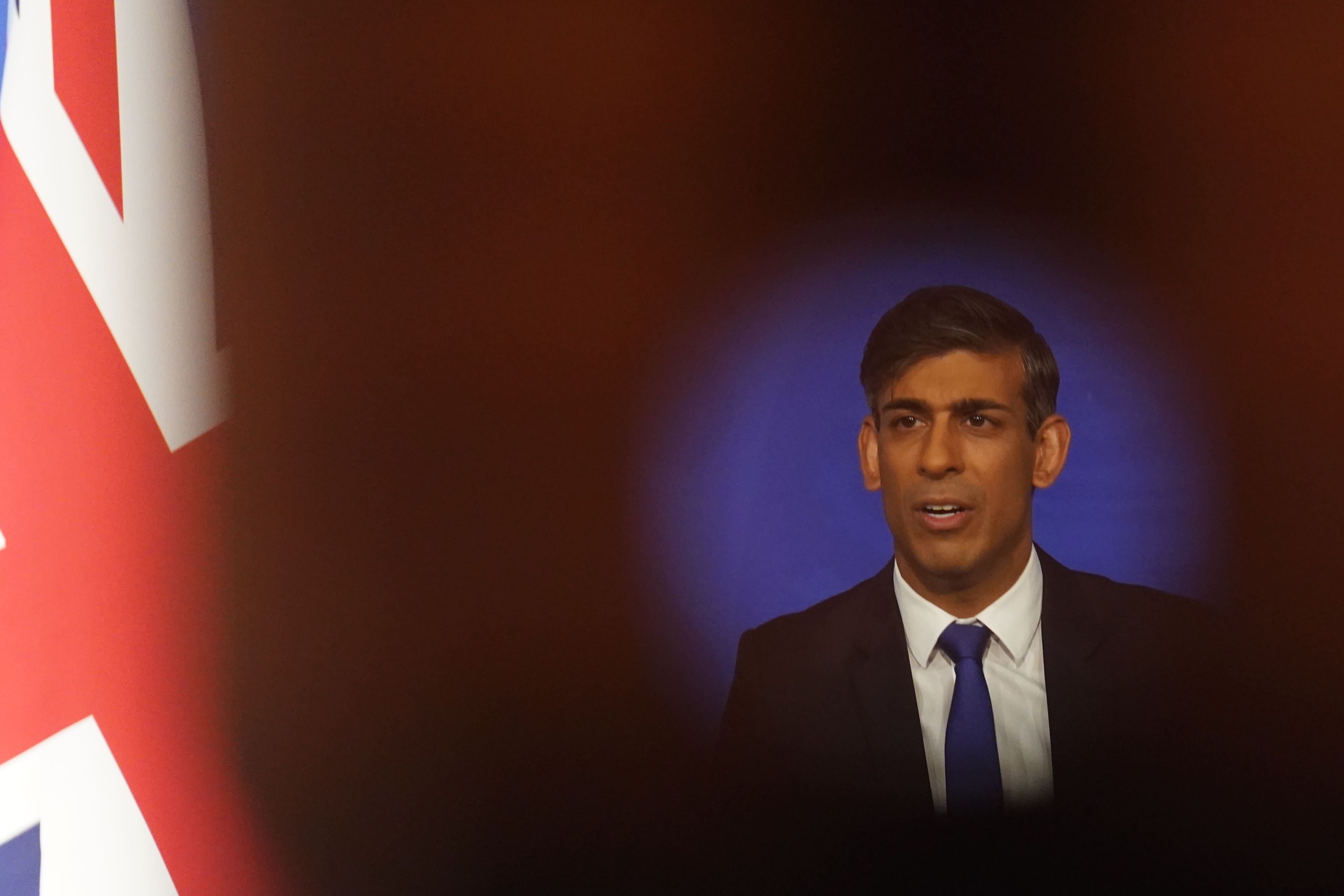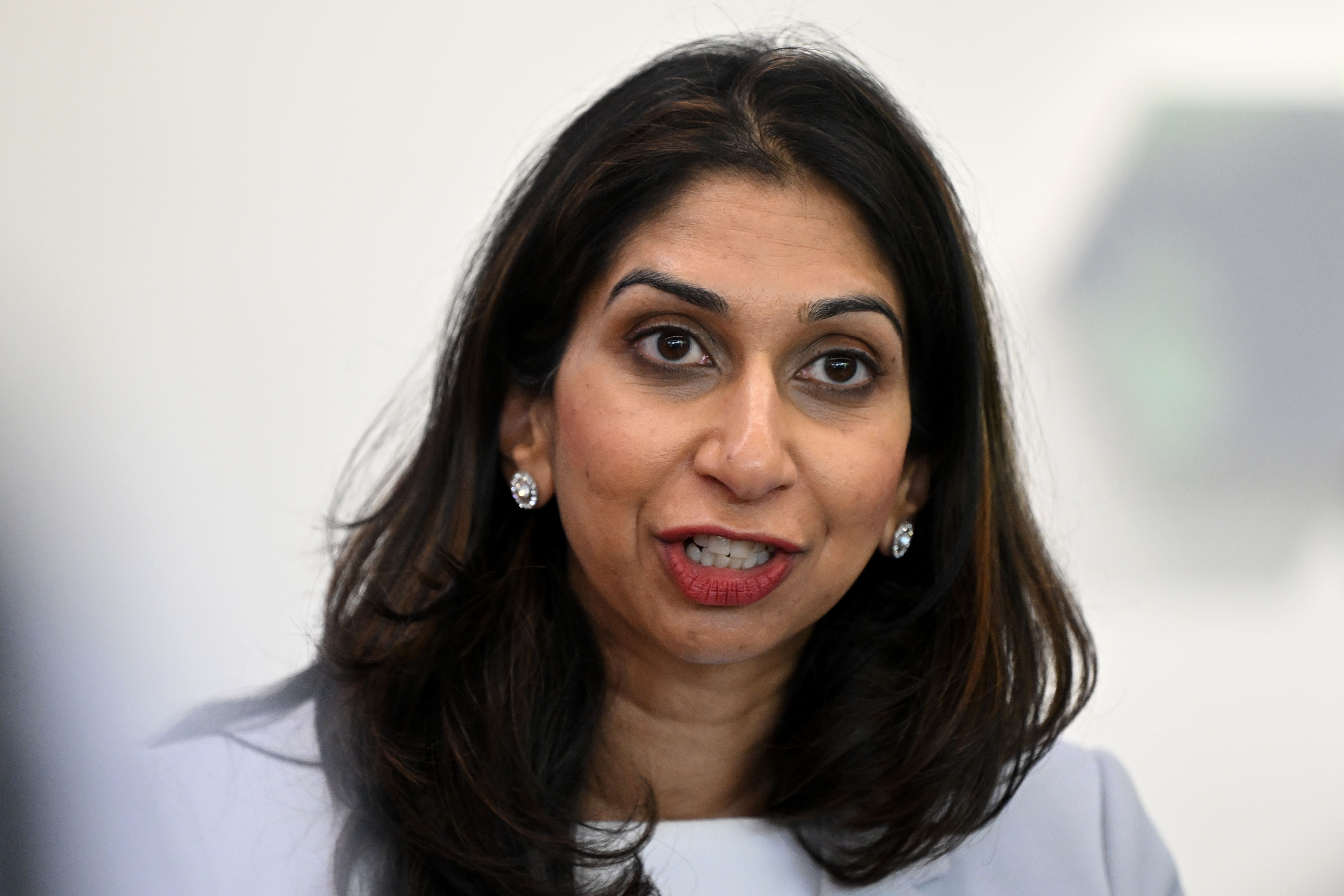Rishi Sunak urged to act on migration as population set to hit nearly 74m
Ex-home secretary Suella Braverman leads Tory right in calling for PM to control net migration
Rishi Sunak came under fire from Tory right-wingers after figures showed net migration is set to swell the UK population by more than six million by the middle of the next decade.
The figures will infuriate Brexit backing MPs who had promised that the UK would take control of immigration.
The prime minister was warned by his right-wing backbenchers to act after the Office for National Statistics (ONS) said the population could hit nearly 74 million by 2036.
Some 92 per cent of the 6.6 million projected growth – 6.1 million people – was attributed to migration in the research rather than births.
Downing Street insisted Mr Sunak wants net migration to “come down quickly” but was not backing a call from former home secretary Suella Braverman to introduce a cap on numbers.

Home Secretary James Cleverly said that migration levels are “too high” and that “we must get back to sustainable levels” as he detailed a raft of new restrictions.
The ONS cautioned that policy changes and the “impact of as yet unknown migrant behavioural patterns” will affect population levels.
But the figures suggest that the UK population could hit 70 million by mid-2026 – a decade sooner than in figures published in 2022, which projected a date of mid-2036.

Mrs Braverman, the sacked home secretary who is seen as a potential challenger to Mr Sunak, argued that the “numbers are too high, placing pressure on schools, the NHS and housing”.
“Recent Government measures will help a bit but they’re very late,” she wrote on social media.
“We need a cap on overall numbers so we can hold Government to account and fix this problem.”
Robert Jenrick, who quit as immigration minister alleging Mr Sunak’s Rwanda policy does not go far enough, said the population growth will “deepen the housing crisis”.
“There is no democratic consent for this outcome. This pace of change is far too fast,” he said.
“After leaving the EU the power to change this, and set us on course for far more sustainable numbers, is in Parliament’s hands.”
Downing Street sought to appear on the front foot in efforts to bring migration down but chose not to back Mrs Braverman’s call for a cap.
The Prime Minister’s official spokesman said: “We’ve set out the biggest ever reduction in legal migration, we retain the ability to go further. We do think it is something that the public wants us to do.
“The Prime Minister is certainly of the view that legal migration has been too high – it must come down, and it must come down quickly.”
Mr Cleverly added some fresh details to already announced plans were aimed at bringing down levels.
Foreign care workers will be restricted from bringing relatives with them from March 11, and from April 4 the minimum salary for a skilled worker visa will rise from £26,200 to £38,700.
A hike in the minimum income requirement for family visas will be introduced in stages after Mr Sunak faced criticism that the change was too high and would disrupt households.
The first increase, from £18,600 to £29,000, comes into effect from April 11 and is then set to rise to £38,700 by early 2025.
Legal migration minister Tom Pursglove told the PA news agency the changes will make a “tangible difference” to getting net migration to a “more sustainable place”.
But Lee Anderson, who resigned as deputy Tory chairman to rebel over the Rwanda plans, said: “This is not sustainable.
“I have never understood the clamour for cheap foreign labour. It is not cheaper. The true cost is the pressure it puts on all our services.”
Labour’s shadow immigration minister Stephen Kinnock said the higher net migration figures were a result of “14 years of Conservative failure on the economy and immigration”.
He argued the increase in migration for work was a “result of their failure on skills, training and domestic workforce planning here in the UK”.
The population of the UK is projected to grow from an estimated 67.0 million in mid-2021 to 73.7 million by mid-2036, an increase of around 6.6 million or 9.9 per cent.
Over this period it is projected that 10.8 million people will be born, 10.3 million will die, 13.7 million will move long term to the UK while 7.6 million people will emigrate.
This means that of the projected 6.6 million increase, 0.5 million would come from a higher number of births than deaths, while 6.1 million would result from net international migration.
The demographic mix of the population is projected to continue tilting towards older age groups.
There could be an additional one million people in the UK aged 85 and over during the next 15 years.
Downing Street also faced questions on how it could plug the gaps in the economy if immigration levels are brought down.
“It’s the Prime Minister’s job, working with the Chancellor, to secure growth in the economy,” Mr Sunak’s spokesman said.
“Obviously, we do not think it’s right to do that relying on migration, which puts excessive burdens on communities.”
Join our commenting forum
Join thought-provoking conversations, follow other Independent readers and see their replies
Comments
Bookmark popover
Removed from bookmarks